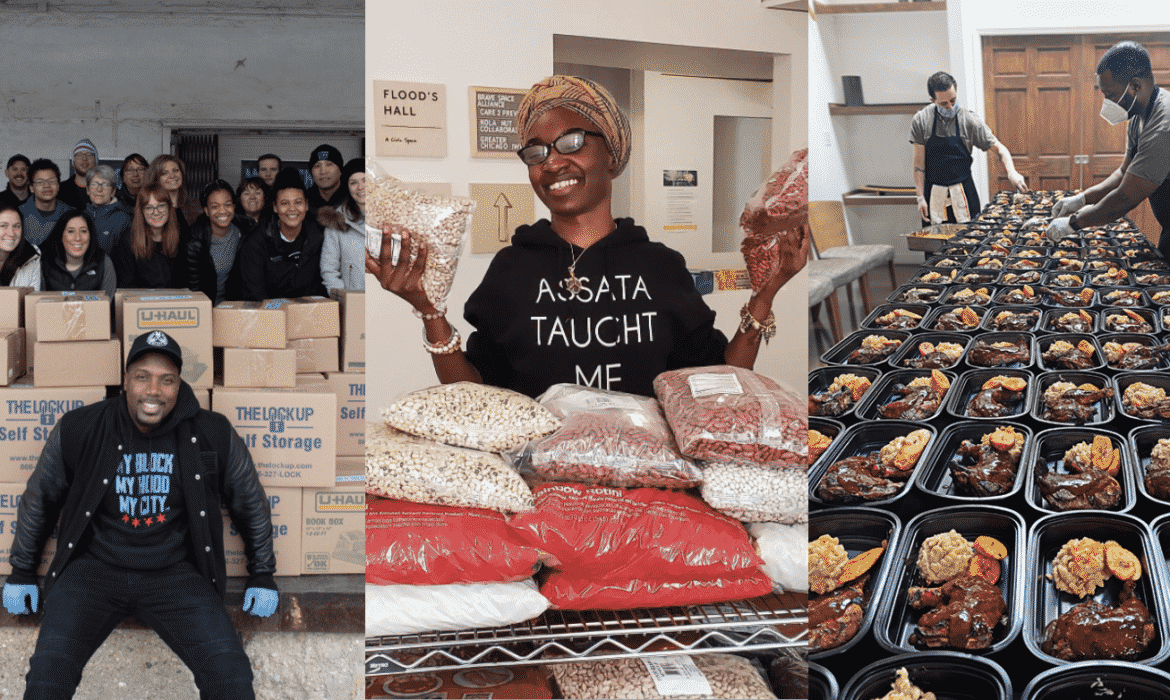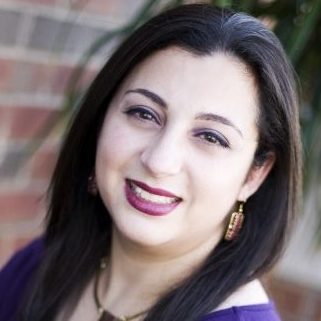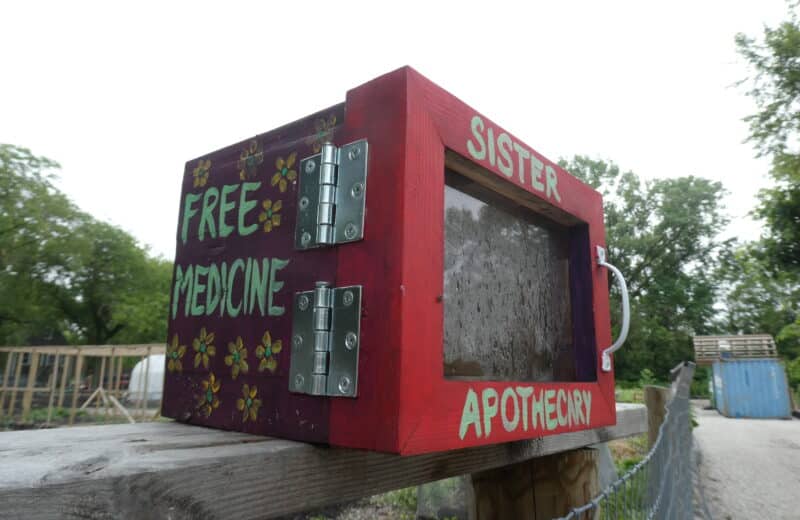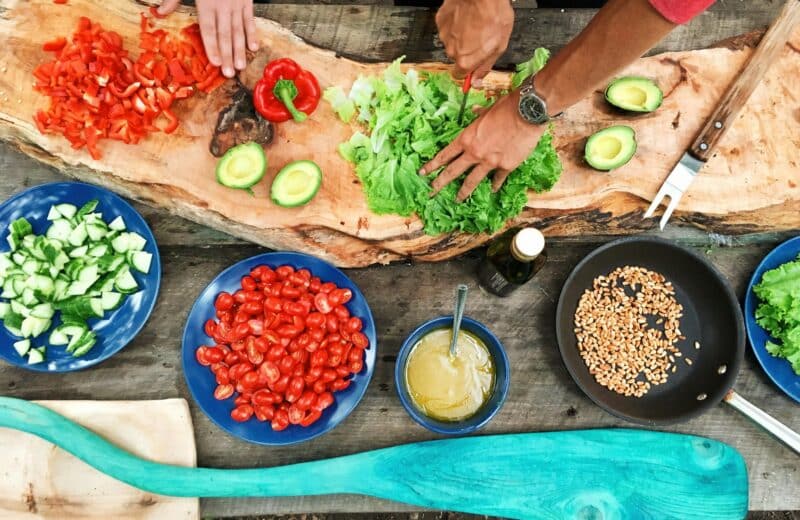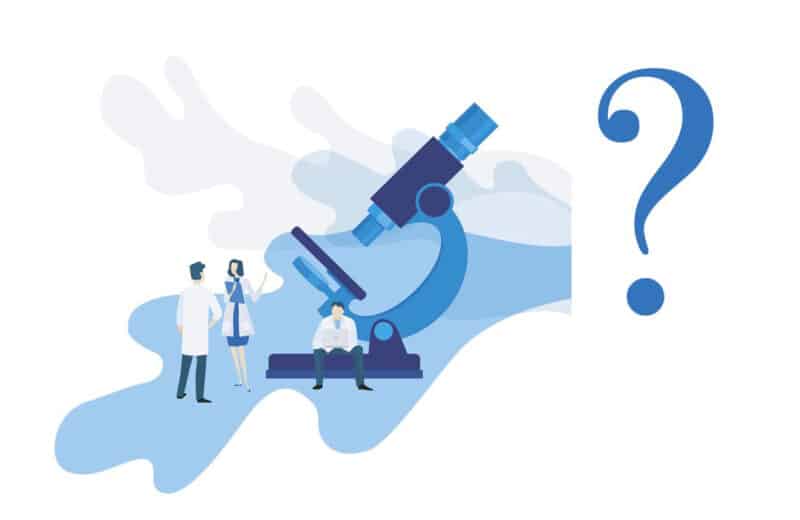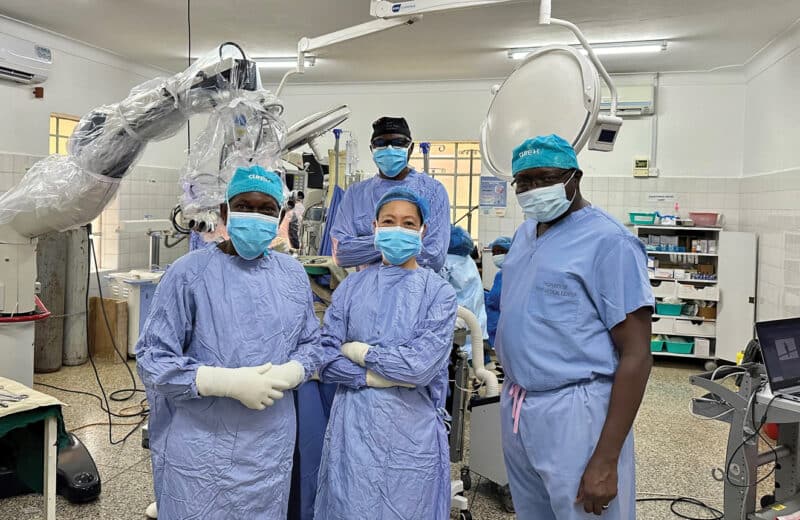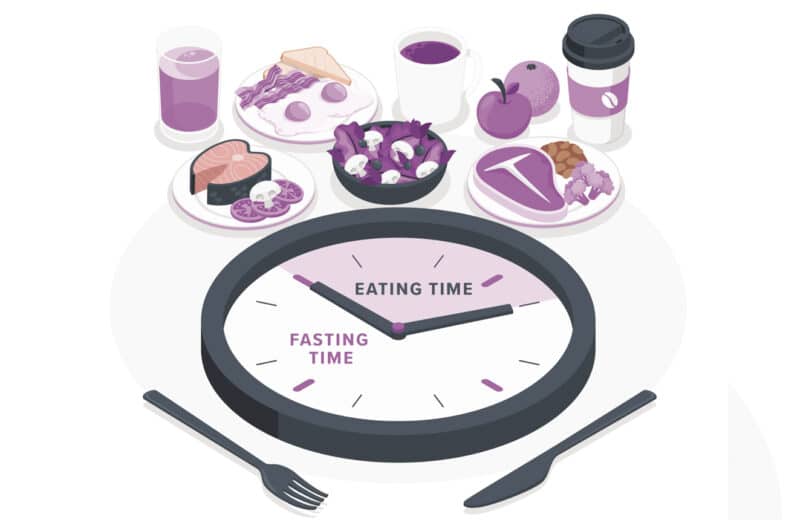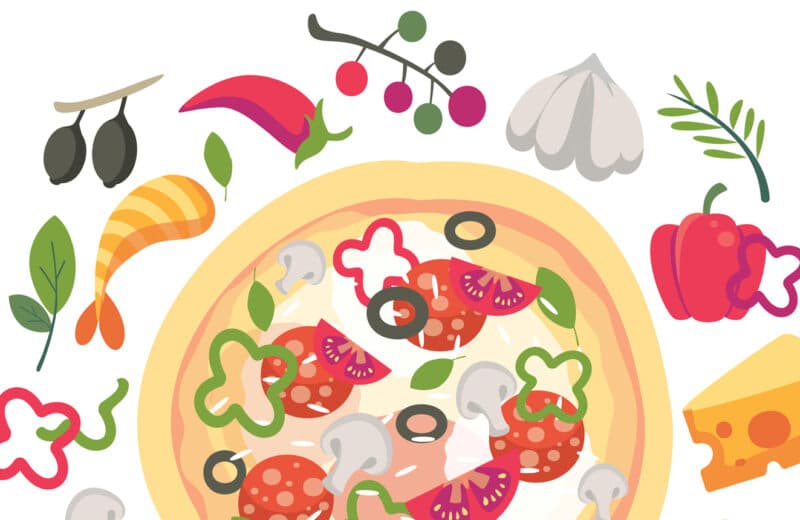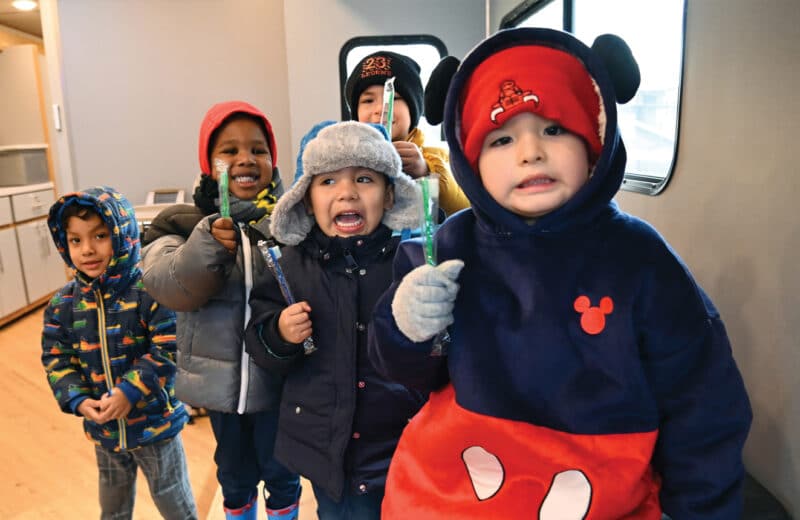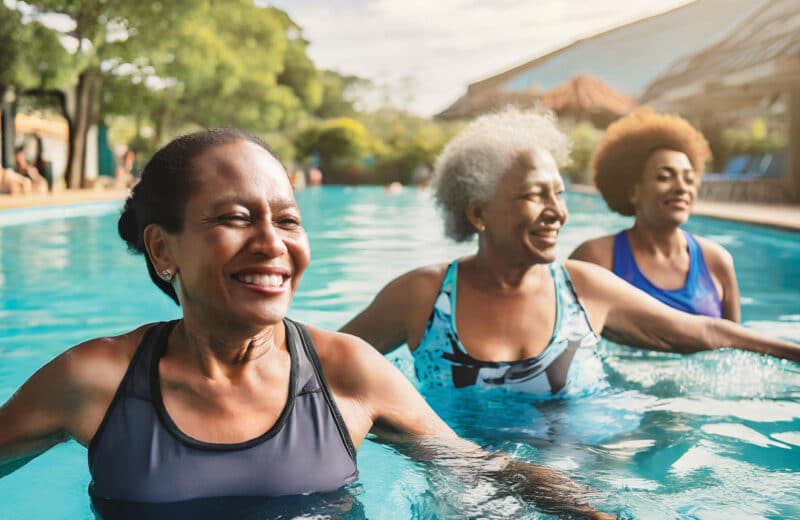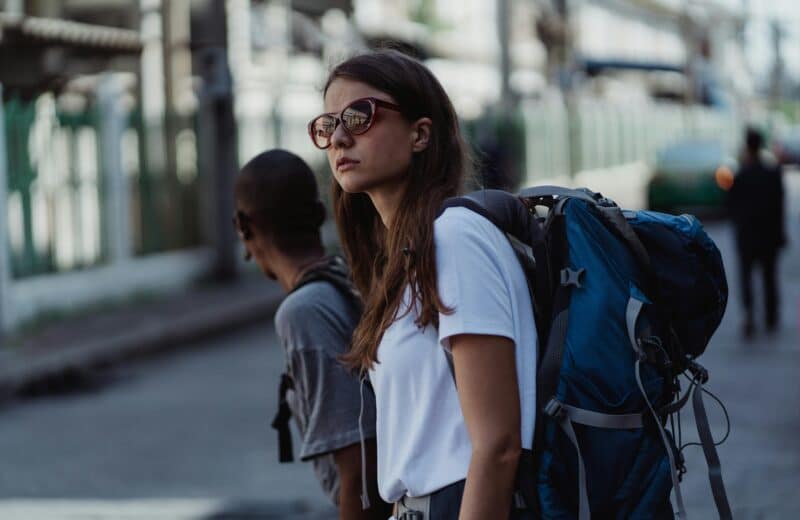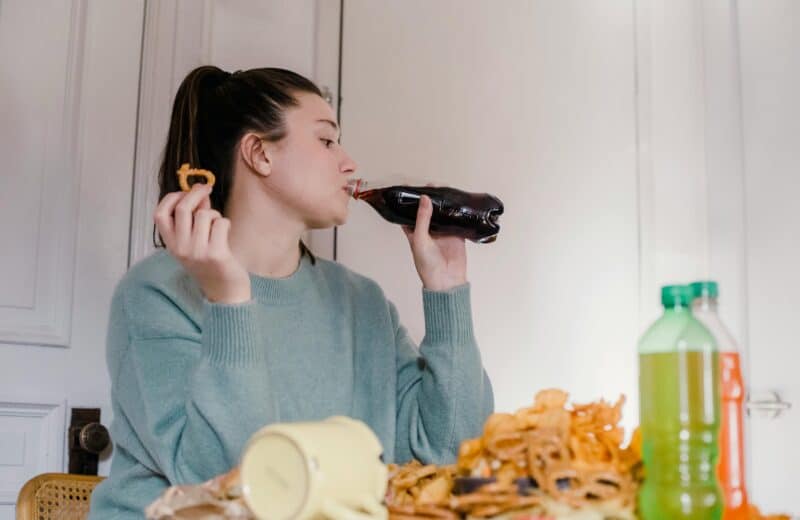Providing food, hope, and care during Covid-19
The fallout from the Covid-19 pandemic has created profound economic and health uncertainties for individuals across the Chicago area. It also painfully brought to light just how much inequity and food insecurity exists here.
In response, community groups sprang into action, stepping up to help people in their communities and beyond. These groups reacted quickly and continue to respond, attempting to meet the increased need for food and other services.
Here’s a look at just a few of the groups that have been working nonstop to fill in the gaps in their communities.
Viral response
Jahmal Cole, CEO and founder of My Block, My Hood, My City, considers himself a champion of social justice. He created the nonprofit organization as a way to build a more interconnected Chicago through neighborhood-based service and education.
“Our motto is: We take care of people no matter what,” he says. “If there’s a snowstorm, you’ll see us out there shoveling snow for seniors. If there’s a heat wave, you’ll see us out there delivering water. When Covid-19 hit, we had to pivot.”
Instead of guessing what the needs were, Cole started by asking elders within the communities most affected. More than 3,000 reached out within the first week.
“They needed safety kits, disinfecting spray, and hand sanitizer,” Cole says. So he deployed the organization’s resources.
Because so many of the seniors lack primary healthcare providers, My Block, My Hood, My City has hired 75 young people, paying them $15 an hour to make wellness calls to older adults.
The effort is part of the organization’s Youth-Senior Connect program, which provides part-time jobs for Chicago students to assist older adults in need. Another bonus? The connections create cross-generational communication — a positive exchange for everyone involved.
Feeding a community
In Evanston, a Covid-19 community need kicked off a rapid response from Soul & Smoke, an Evanston-based catering company that provides slow-roasted, smoked meats for events.
A Soul & Smoke client asked how she could donate $500 worth of food to a few families who couldn’t access fresh food after the statewide stay-at-home order went into effect in mid-March.
“It started on a small scale,” says Heather Bublick, owner of Soul & Smoke. “Our original goal was we were going to [provide] 30 meals a day.”
The restaurant owners knew that Covid-19 would impact food availability in the community. “We knew that food insecurity was already such a problem, and this was only going to exaggerate it,” Bublick says.
Soon after those initial individual donations, the Evanston Community Foundation gave the company a grant to prepare 150 meals a day for Evanston residents who needed it. Bublick and D’Andre Carter, executive chef of Soul & Smoke, began preparing meals for hundreds without skipping a beat.
Though the menu changes, “Our regular shelter-in-place daily menu includes smoked barbecue brisket, smoked pulled pork, roasted chicken, grilled salmon, with sides such as macaroni and cheese,” Carter says.
Other organizations, including the Trotter Project and World Central Kitchen, partnered with Soul & Smoke so the catering company could continue to produce hearty meals to donate.
Soul & Smoke, which has provided more than 60,000 free meals, plans to continue the effort as long as Covid-19 affects the local community.
Positive impact for LGBTQ community
On Chicago’s South Side, Brittney Thomas has been working daily to help the LGBTQ community access much-needed resources during the pandemic. As director of programs for Brave Space Alliance, the first Black-led, trans-led LGBTQ nonprofit center located on the South Side of Chicago, Thomas knew that many individuals the organization serves were at risk.
Many have compromised immune systems, largely due to the systemic and institutional barriers they face in access to care, Thomas says. As a result, going out to get food, medication, and other necessities puts them at risk.
For the duration of the Covid-19 pandemic, the organization is housing a Crisis Pantry, providing free food staples. It’s also collecting food, medical supplies, and feminine hygiene products for other pantries servicing Black and brown people in Chicago.
Brave Space Alliance, which creates and provides affirming and culturally competent services for the entire LGBTQ community in Chicago, started a mutual aid program to create community-oriented strategies for access to HIV care and resources. And it’s facilitating online support groups for trans and gender-nonconforming people in need of support during this time.
The group isn’t working alone. Brave Space Alliance partnered with the Trans Liberation Collective to launch a Covid-19 Trans Relief Fund for additional much-needed assistance.
“The Trans Relief Fund is specifically for trans, nonbinary, and gender-nonconforming people and intersex individuals who have faced financial hardship due to the pandemic,” Thomas says.
“We’ve been sending up to $200 to folks who meet the criteria,” Thomas adds. “We’ve had a high demand for it because a lot of people have been laid off or fired or have reduced hours, but they still need money to pay bills and rent.”
As we continue to navigate through the pandemic and economic crisis, Cole of My Block, My Hood, My City says he’s been challenging people to ask themselves a 15-word question: “What’s something simple I can do that can have a positive impact on my block?”
Fifteen words, Cole says. “Instead of trying to change policies, instead of trying to march on Washington, what’s something simple you can do? If you work in [information technology], can you make a website for a nonprofit? If you want to mentor, can you do that? Leverage what you’re good at and do that, because that’s protesting too.”

